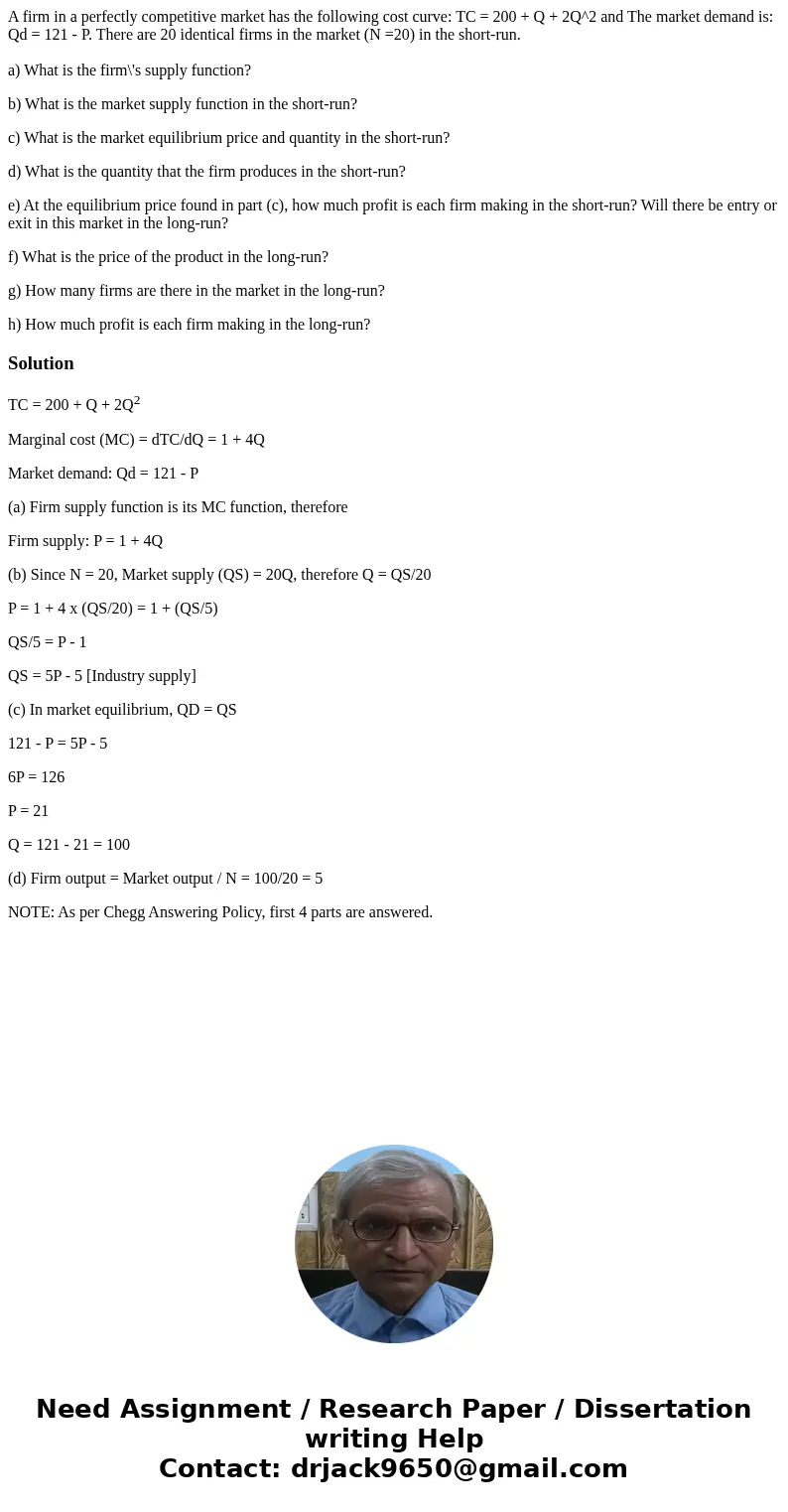A firm in a perfectly competitive market has the following c
A firm in a perfectly competitive market has the following cost curve: TC = 200 + Q + 2Q^2 and The market demand is: Qd = 121 - P. There are 20 identical firms in the market (N =20) in the short-run.
a) What is the firm\'s supply function?
b) What is the market supply function in the short-run?
c) What is the market equilibrium price and quantity in the short-run?
d) What is the quantity that the firm produces in the short-run?
e) At the equilibrium price found in part (c), how much profit is each firm making in the short-run? Will there be entry or exit in this market in the long-run?
f) What is the price of the product in the long-run?
g) How many firms are there in the market in the long-run?
h) How much profit is each firm making in the long-run?
Solution
TC = 200 + Q + 2Q2
Marginal cost (MC) = dTC/dQ = 1 + 4Q
Market demand: Qd = 121 - P
(a) Firm supply function is its MC function, therefore
Firm supply: P = 1 + 4Q
(b) Since N = 20, Market supply (QS) = 20Q, therefore Q = QS/20
P = 1 + 4 x (QS/20) = 1 + (QS/5)
QS/5 = P - 1
QS = 5P - 5 [Industry supply]
(c) In market equilibrium, QD = QS
121 - P = 5P - 5
6P = 126
P = 21
Q = 121 - 21 = 100
(d) Firm output = Market output / N = 100/20 = 5
NOTE: As per Chegg Answering Policy, first 4 parts are answered.

 Homework Sourse
Homework Sourse